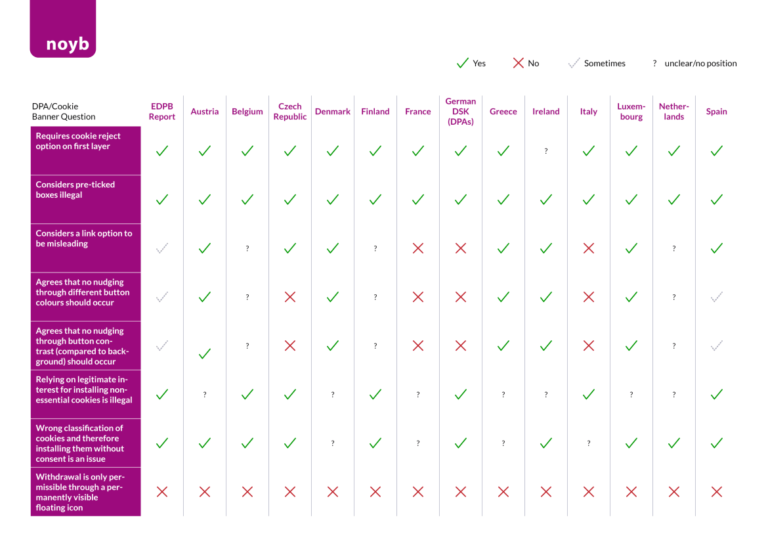noyb’s Consent Banner Report: How Authorities Actually Decide
On 11 July 2024, noyb released its Consent Banner Report, analyzing how European DPAs handle consent banner violations compared to EDPB guidelines. Following hundreds of complaints, the EDPB created a taskforce in 2021 and published findings in January 2023. noyb’s report highlights discrepancies between the EDPB’s recommendations and national DPAs’ practices, providing essential insights for companies to improve their consent banners. The report underscores the importance of clear, non-deceptive consent mechanisms to comply with GDPR standards.
noyb’s Consent Banner Report: How Authorities Actually Decide Read More »




